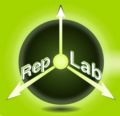Difference between revisions of "Virtual designs into physical objects/Fab Labs"
| Line 3: | Line 3: | ||
*{{wp|Laser_cutting|Laser cutters}}, {{wp|Plasma_cutter|plasma cutters}} and {{wp|Water_jet_cutter|water jet cutters}} - to cut sheet materials such as plastic and metal | *{{wp|Laser_cutting|Laser cutters}}, {{wp|Plasma_cutter|plasma cutters}} and {{wp|Water_jet_cutter|water jet cutters}} - to cut sheet materials such as plastic and metal | ||
| − | *{{wp|CNC|CNC machines}} - computer controlled mills, lathes etc. | + | *{{wp|CNC|CNC machines}} - computer controlled mills, lathes etc. ({{film icon}} [http://www.youtube.com/watch?v=RnIvhlKT7SY Amazing video of a 5-axis CNC-mill in action]) |
*[[Rapid prototyping machines]] - 3D layered construction | *[[Rapid prototyping machines]] - 3D layered construction | ||
*{{wp|Printed_circuit_board_milling|Printed circuit board milling machines}} | *{{wp|Printed_circuit_board_milling|Printed circuit board milling machines}} | ||
Revision as of 23:48, 10 April 2010
Fab Labs (fabrication laboratories) are small scale workshops with modern computer controlled equipment such as...
- Laser cutters
 , plasma cutters
, plasma cutters  and water jet cutters
and water jet cutters  - to cut sheet materials such as plastic and metal
- to cut sheet materials such as plastic and metal - CNC machines
 - computer controlled mills, lathes etc. (
- computer controlled mills, lathes etc. ( Amazing video of a 5-axis CNC-mill in action)
Amazing video of a 5-axis CNC-mill in action) - Rapid prototyping machines - 3D layered construction
- Printed circuit board milling machines

...giving the ability within one room to create just about anything from engines to electronic devices. The concept was developed at the Center for Bits and Atoms at MIT.
Around 34 fab labs have been set up around the world so far to give ordinary people in deprived areas access to this type of machinery to help people create machines and devices for themselves and their community.
Commercial versions are now starting to spring too, see http://www.techshop.ws.
Links
- MIT Fab lab website
- Wired article
- CNN article
- FAB The Coming Revolution on Your Desktop – from Personal Computers to Personal Fabrication the book by Neil Gershenfeld
 , head of the Center for Bits and Atoms at MIT
, head of the Center for Bits and Atoms at MIT 
'RepLab'
RepLab - Open-source, replicable FabLabs. Very nascent but holds great promise as a concept. Conventional FabLabs use expensive commercial equipment - RepLab wants to reduce the cost by an order of magnitude and at the same time significantly increase functionality. On top of that it would follow RepRap principles so that the equipment in a RepLab would be able to create another RepLab. In principle: a multi-process, multi-material RepRap.


